_770.webp)
Even though German legislation strictly regulates gambling, there are many casinos in Germany that are popular and recognized all over the world. The oldest casino in Baden-Baden was even mentioned in Forbes' top ten casino list.
Nowadays, there are over 70 land-based casinos in Germany. Some of them are state-owned. The others are owned by private companies. About 20 companies own all German casinos. In addition, the country has more than 12,000 gambling halls and over 24,000 lottery agencies. The number of gambling machines in the restaurants, snack bars, and gambling halls may exceed 200,000. Thus, gambling in Germany is available and accessible to the majority of Germans.
German Gambling History
Gambling games always appear in wealthy regions. Germany has always been a wealthy country, and dice games were very popular in the Middle Ages in it: people played everywhere, especially at restaurants. The cards appeared in Germany in the 14th century and spread like wildfire. The city of Ulm became a European center of the card manufacturing industry, and these cards were exported to many countries. The lottery appeared in Germany in the 16th century. The attempt to separate gambling from other popular games was undertaken in Germany in the Medieval period.
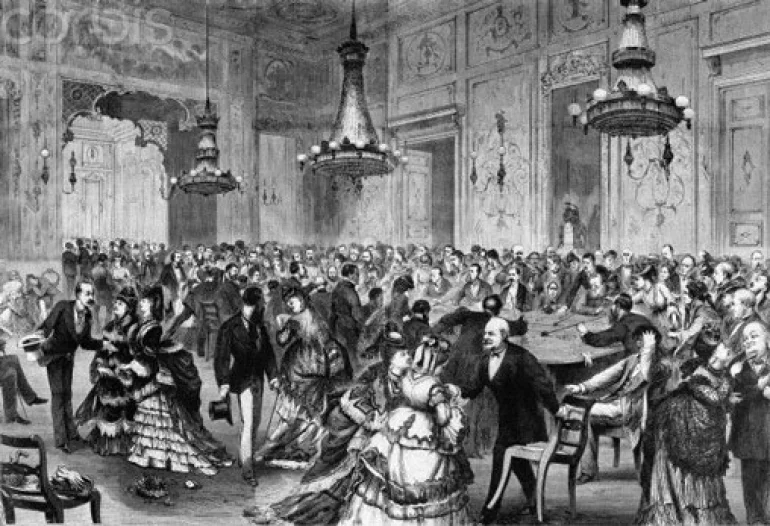
Gambling flourished in Germany in the early eighteenth century. The first casino was opened in Baden-Baden in 1765. Its successor was called the Kurhaus Casino Baden-Baden, built by the architect Friedrich Weinbrenner, who began his operation in 1824. The law that banned all German casinos was adopted in 1872 after the German reunification, but the government legalized gambling in 1933, and the casino in Baden-Baden was reopened. It was once again forced to stop its operations in 1944 due to the defeat in World War II. It was opened again on April 1, 1950. Since that day, the casino in Baden-Baden has been successfully operating and is listed on Forbes' list of the top ten best casinos.
Casinos and other forms of gambling in Germany became more popular in the second half of the 20th century. The lotteries and sports betting gained in popularity, in addition to casinos and slot machines. Gambling outside the country, especially in Las Vegas, became fashionable. However, nowadays, many small casinos have financial problems, and each year, more and more German casinos close their doors. The major casinos have to create something unusual in order to attract visitors and stay in business. Some casinos hold international poker tournaments, while others organize regular events with popular international celebrities.
Regulation of Gambling in Germany
The activities of casinos are regulated by federal laws in Germany. This means that each of the 16 existing federal states may license and regulate the activities within its territory. Each state has its own rules that are applied at casinos. They also restrict the limits for the casinos located in the territory of the federal state. Their activities related to gambling in the German states are controlled by the Federal Ministry of the Interior and the Federal Ministry of Finance.
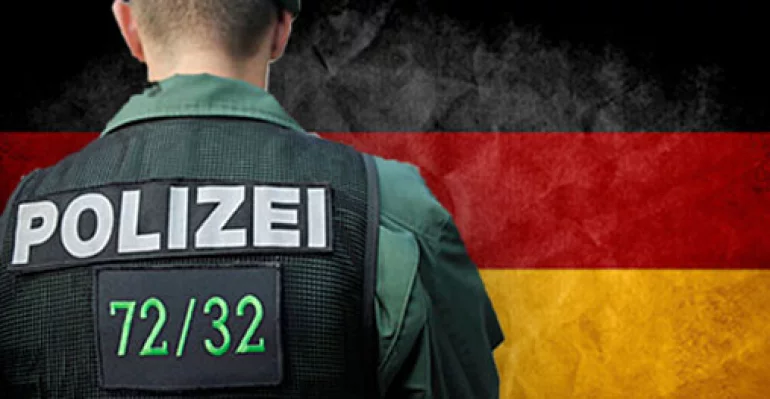
The rules that control the operations of casinos in Germany are complex and pose high demands on the owners of casinos in order to protect players and to prevent illegal money laundering. The registration procedures with German casinos are so severe that casino employees are regularly trained. To allow the player to play at a casino, they must be at least 18 years old, although at some casinos it is prohibited to play for those whose age does not exceed 21 years. It is necessary to have an identity card to visit casinos. The dress code and opening hours may vary. However, users usually may play board games in the afternoon, while the slots may be available earlier and are open until late at night. There are significant limitations in Germany concerning advertising.
Where and What to Play at German Casinos?
Casinos are located throughout Germany. Almost every major city has at least one casino. In addition, there are many gambling establishments in the centers of urban ecotourism and spa tourism. The total number of casinos operating in Germany exceeds 70. The German casinos significantly differ from each other in their design and interior. Some of them are built in a modern steel & glass style. The others are standard palaces.
Nevertheless, most German casinos offer classic games: American and European roulette, blackjack, baccarat, punto banco, Texas hold 'em poker, Omaha poker, electronic roulette and bingo, video poker, and numerous slot machines. The poker tournaments are regularly held among players. In addition, most German casinos are intended strictly for gambling and don't offer other kinds of entertainment.
Most Famous German Casinos
Kurhaus Casino Baden-Baden
The Kurhaus Casino Baden-Baden is an architectural masterpiece, the heart of Baden-Baden, and a great attraction. "The most beautiful casino in the world", with these words, Marlene Dietrich described this oldest casino of Germany, and it inspired Dostoevsky to write The Gambler. It is one of the most luxurious and extraordinary gambling houses in Europe that is characterized by diverse elements of the interior reminiscent of bygone days. The Kurhaus Casino Baden-Baden has been a temple of gambling with its 250-year history and design of the French royal palaces. It was mainly visited by nobles and representatives of the European elite. Nowadays, the doors are open to all guests of Baden-Baden, but it is still primarily visited by numerous celebrities and historical figures.
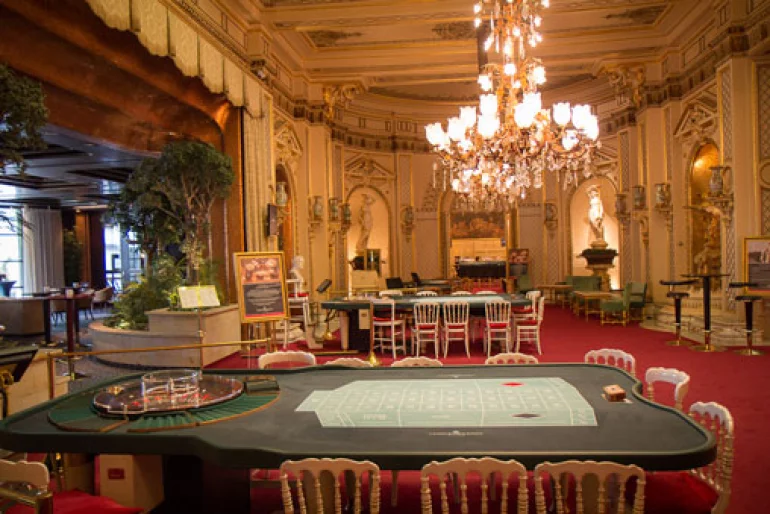
Turgenev, Glinka, Tolstoy, Stolypin, and other celebrities used to play there. Nowadays, Baden-Baden is also popular among rich and famous individuals, such as Bill Clinton, Barack Obama, Ronald Reagan, Mikhail Gorbachev, Angela Merkel, Victoria and David Beckham, Arab sheiks, and many others.
If you want to play games of chance at casinos, you should register at the reception desk. The entrance fee is five euros. You have to show an identity card or passport. You also have to wear a tie and suit, which can be rented at the entrance to a casino.
Casino Berlin Potsdamer Platz
The most famous casino in Berlin is the Casino Berlin Potsdamer Platz, which is located at Potsdamer Platz. This casino was opened in 2000.It is still considered to be one of the most successful casinos in Germany. Users can play classic board games, such as roulette and blackjack (baccarat tables were uninstalled due to the lack of demand) in the four-storey casino building.
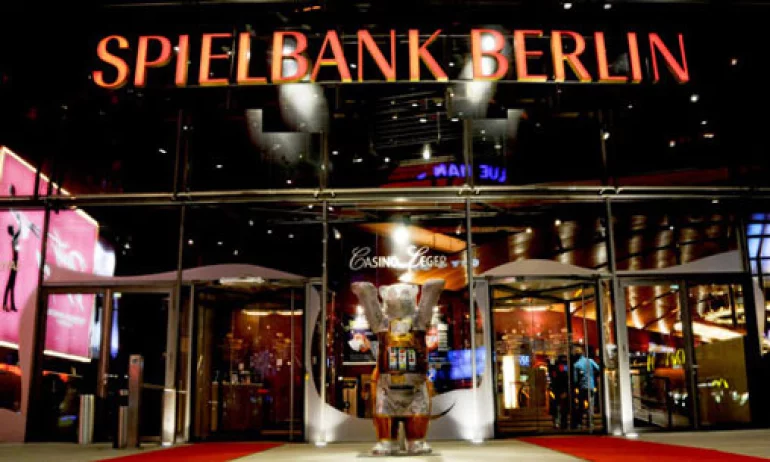
The largest poker room in Germany, where poker tournaments are regularly held, is also located here. There are 350 slot machines with different jackpots, including the so-called Berlin jackpot, whose amount can not be less than 500 thousand euros, available on the ground and two basement floors. About 1,500 people visit Spielbank Berlin daily. The entrance fee is 2.50 EUR.
Bad Homburg Casino
One of the oldest casinos in Germany was inaugurated in 1841-1842 under the ownership of the brothers Francois and Louis Blanc, who later built the casino in Monte Carlo. So sometimes the Bad Homburg Casino is referred to as "the Mother of Monte Carlo." You will find a unique atmosphere, a diverse menu, shows, and a wide range of classic games and slot machines.
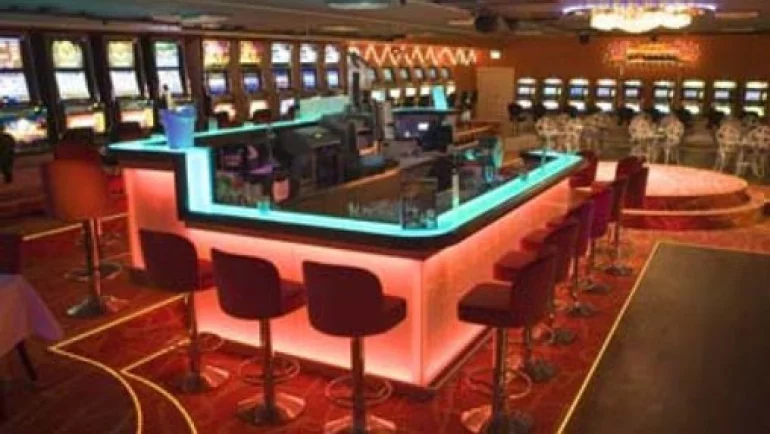
In 2008, the casino was expanded. A new casino lounge was built to attract a younger audience. "We want to become younger", said Wolfgang Kropp, a spokesperson of the casino. The combination of live performances, a well-groomed club with a dance floor, and a pleasant atmosphere really attracts young people, especially females, who are moving on Friday night between the dance floor and the bar and sitting in front of the slots or at the tables.
Casino Bad Oeynhausen
The history of the Casino Bad Oeynhausen dates back to the 1980s, when it was built opposite Werre-Park, which was the largest shopping mall in eastern Westphalia. Nowadays, Oeynhausen is a popular resort and is known as a recreation area, so the casino in this resort town is always full of visitors. The casino of this resort town is designed in the American style. The casino building has been recently renovated, and now it is unique in its own way: gambling halls are luminous with sunlight thanks to the glass ceiling.

The American and French kinds of roulette, blackjack, punto banco, various types of poker and slot machines are available at the Casino Bad Oeynhausen. The classic poker and slot tournaments are held there. Fine drinks and delicious dishes are offered at the Diamond Bar Casino. The comfortable lounges, friendly staff, and excellent service create the perfect atmosphere for evening entertainment.
Casino Aachen
The noble building of Casino Aachen is made in the Roman style. It welcomes its visitors with an impressive portico. The interior of Casino Aachen is designed in a modern style, full of blue. The hall has a bright and wonderful atmosphere due to the high ceilings and windows. You'll find classic games in the halls: roulette, blackjack, and poker. There are special tables for novice gamblers with no experience, at which they can play slowly and clearly, making bets of 1 euro.

Casino Aachen has a restaurant called Salon Pascal, as well as two bars: Herzdame-Bar and Red and Black brasserie. There are also meeting rooms and halls for various activities: Casino Pavillion Lenne, Salon Gala, which is a tribute to Salvador Dali, decorated in the Art Nouveau style, and Club Zero hall. While entering the casino, you have to show your identity card and pay five euros. Dress code is quite democratic. It is allowed to wear jeans and T-shirts.
Casino Reeperbahn
The Casino Reeperbahn is located in the heart of St. Pauli, a famous red-light district in Hamburg. In the past, this district was known as a mile of sin and was famous for its cheap bars and prostitutes. However, many nightclubs, discos, as well as respectable establishments of the sex industry have appeared there in recent years. They have made this district especially attractive for locals and tourists. It seems that the exterior and casino services are intended for a typical casual drunk visitor of mile of sin.
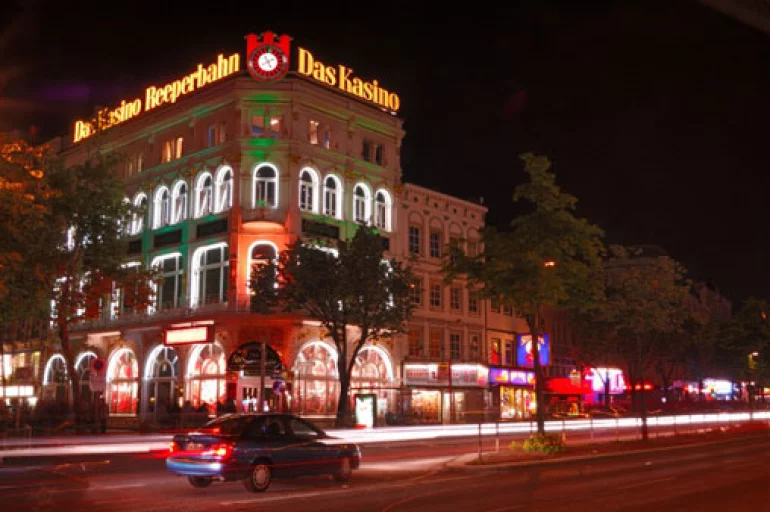
This casino occupies three floors of a narrow building. There are two roulette tables, two blackjack tables, a few slots, and a small bar on the ground floor. Customers can find approximately one hundred slot machines on the first floor of the casino. The poker room is available on the second floor. The design is practical and straightforward. The internal space is separated by glass walls. The elevator resembles a glass box. Only adult customers (at least 18 years of age) may enter the casino. You have to show a valid identity card or your passport. The entrance fee is 1 euro. There's no dress code. Most visitors just come from outsid,e dressed in everyday clothes. The atmosphere in the casino is very informal. In general, the casino is suitable for this district of Hamburg.
Casino Hohensyburg
In the southern district of Dortmund, one of the largest casinos in Germany, called Casino Hohensyburg, stands high above the Ruhr valley. It is located right next to the ruins of the Hohensyburg castle. It was built in modern style in 1985, after almost two years of construction. Thanks to its unique style, the Casino Hohensyburg attracts many ordinary visitors and celebrities. The list of its visitors included Queen Silvia of Sweden, Arnold Schwarzenegger, Vitali and Wladimir Klitschko brothers. Sammy Davis Jr. took part in the opening ceremony. In general, the Casino Hohensyburg periodically organizes spectacular cultural events and glamorous shows with famous guests.
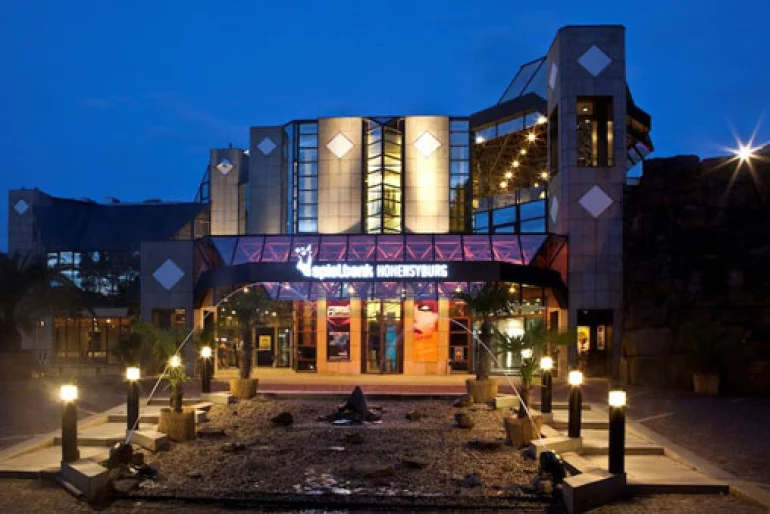
The whole range of games is available on the three floors of this casino. There are over 40 roulette, poker, blackjack, baccarat tables and more than 300 slot machines, combined into the common jackpot system.
The fans of roulette will be really satisfied. It is pretty challenging to find such favorable conditions elsewhere. The outcomes of spins are displayed on the big board located near each table. There are special seats with folding stands and writing materials. Poker fans will not be disappointed: at Casino Hohensyburg, many tournaments are held, including the WSOPE and WSPT.
Online Casinos in Germany
Although the first online casino appeared in 1995, online gambling games have become very popular since the beginning of the new millennium. The technological advances of the past two decades can serve as a cause of it. Indeed, many people did not have computers in 1995, and smartphones and tablets did not even exist. Even the Windows operating system was still in its infancy, and connections were very slow.
Currently, the majority of Germans have not only PCs. Most people also have smartphones and tablets. Internet connections have become faster and more reliable, and streaming video is an integral part of our lives. Therefore, casinos and online gambling are becoming more and more popular. Millions of Germans regularly play online gambling games on their PCs and mobile devices.

Even though gambling and casinos are legal in Germany, you will not find German online casinos operating legally. The situation in online gambling is quite complicated. Internet gambling is not fully regulated. The German Interstate Treaty on Gambling, adopted on January 1, 2008, prohibits all forms of online gambling, except for horse racing betting. The European Court ordered Germany to liberalize the gambling market. The authorities of Schleswig-Holstein issued 50 licenses for online casino operators in 2012. They were obliged to operate only on the territory of the state. Yet, this law was canceled in February 2013 by the new federal government, which caused sharp criticism from the European Commission.
Thus, the German players have access only to foreign online casinos that are available in German or English. They allow wagering in euros and US dollars. The players technically break the law following Section 285 of the German Code of Crimes. They face a fine of up to 180 daily bets or up to six months in prison. However, no one has been sentenced for illegal gambling. Nevertheless, the situation in online gambling requires urgent changes.
| Casino | Deposit methods | Withdrawal methods | Accepted currencies | |
|
+7
|
+6
|
$, €, ₽, ₴ | ||
|
+4
|
+3
|
$, €, ₽, KZT | ||
|
+6
|
+6
|
$, €, ₽, KZT, C$, kr, zł, ₴ | ||
|
+12
|
+11
|
$, €, ₽, C$, ¥, kr | ||
|
+9
|
+8
|
$, €, ₽ | ||
|
+9
|
+7
|
$, €, ₽ | ||
|
+12
|
+8
|
$, €, ₽, KZT, kr, zł | ||
|
+6
|
+5
|
$, €, ₽ | ||
|
+1
|
+1
|
$, €, ₽, KZT, kr, zł, ₴, YTL | ||
|
+6
|
+7
|
$, €, ₽, ₴ |
The Shifting Sands of German Gambling Law (2016-2021)
The period from 2016 to 2021 was a time of significant transition for gambling in Germany. Prior to this, the legal situation was complex and often contradictory, with various state-level regulations and a general ban on most online gambling activities. This created a highly ambiguous market for both operators and consumers. A key turning point came in 2016, with a ruling from the Court of Justice of the European Union (CJEU) that highlighted the inconsistencies in Germany's sports betting monopoly. This decision created legal pressure for the German federal states to reform their gambling laws. The result was a series of temporary measures and political negotiations aimed at creating a unified regulatory framework.
During this time, the state of Schleswig-Holstein stood out for having its own more liberal gambling laws, including a licensing system for online gambling that was in place from 2012 to 2021. This created a dual system where some German citizens had access to a wider range of licensed online gaming options than others. The federal states, or Bundesländer, struggled to find a compromise that would satisfy all parties while also adhering to European Union law. This period of uncertainty, while challenging for the industry, ultimately laid the groundwork for the most significant legal changes in German gambling history.
The primary challenges and milestones of this era included:
- The ongoing debate over the legality of online gambling under the existing Interstate Treaty.
- A series of court cases challenging the state-run monopolies on sports betting.
- The existence of the Schleswig-Holstein licensing regime highlighted the need for a national solution.
- The granting of the first online sports betting licenses in late 2020 followed years of legal and political gridlock.
The Interstate Treaty on Gambling (Glücksspielstaatsvertrag 2021)
The most crucial moment in modern German gambling came on July 1, 2021, with the implementation of the new Interstate Treaty on Gambling, also known as Glücksspielstaatsvertrag 2021 (GlüStV 2021). This landmark legislation finally provided a unified legal framework for online gambling across all 16 German states. Its primary goal was to liberalize the market to channel players away from unregulated, illegal websites and toward a safe and supervised environment. The new law introduced licensing for previously prohibited activities, which was a monumental shift in German gambling policy.
Key Provisions of the GlüStV 2021
The new treaty brought with it a host of strict regulations designed to protect players and prevent gambling addiction. These measures have made the German market one of the most heavily regulated in Europe. Some of the most notable provisions include:
- A monthly deposit limit of €1,000 per player across all licensed operators. This is a significant measure to control spending and prevent financial harm.
- A stake limit of €1 per spin on online slot machines, along with a mandatory five-second delay between spins. These rules are in place to slow down the pace of play.
- A nationwide self-exclusion system called OASIS, which allows players to voluntarily block themselves from all licensed gambling sites and land-based venues.
- The prohibition of certain high-risk games, such as live casino table games and progressive jackpot slots.
- Strict advertising rules, including a ban on gambling ads on television and radio between 6 a.m. and 9 p.m.
The Rise of the Joint Gambling Authority (GGL)
A new regulatory body was a vital part of the 2021 treaty. The Gemeinsame Glücksspielbehörde der Länder (GGL), or Joint Gambling Supervisory Authority of the Federal States, was established to oversee and enforce the new laws. Headquartered in Halle (Saale), the GGL is now the central authority responsible for issuing licenses, monitoring operators, and ensuring compliance with player protection measures. The GGL's creation in 2021 and its full operational launch on January 1, 2023, marked the end of the fragmented regulatory system that had previously defined the German gambling market.
The GGL’s responsibilities are extensive and include:
- Granting and revoking licenses for online poker, virtual slots, and sports betting.
- Maintaining the official whitelist of all legal gambling operators in Germany.
- Fighting illegal gambling by enforcing rules against unlicensed providers.
- Ensuring that licensed operators adhere to all player protection and anti-money laundering regulations.
Impact and Future Outlook for Gambling in Germany
The changes introduced by the GlüStV 2021 have reshaped the German gambling industry. The legalization and regulation of online gambling have created a more transparent and safer environment for consumers while also generating significant tax revenue for the German states. The strict regulations, particularly the deposit and stake limits, have been a source of debate among operators and players alike, with some arguing that they are too restrictive and could drive players back to the black market.
Despite these debates, the German gambling market is now a legitimate and regulated sector. The GGL continues to work to strengthen its enforcement capabilities, with recent proposals aimed at giving the authority more power to block illegal websites. As the industry continues to evolve, further refinements to the legal framework are expected. The goal remains to strike a balance between providing a safe and legal gambling environment and combating the ongoing threat of unregulated, offshore operators.























